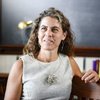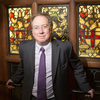Long Lessons - What Can The Religions Of The Book Teach Modern Finance? "The Cairo Geniza & Medieval Global Trade"
Webinar - USA
Never miss a recording again; click here subscribe to Z/Yen's YouTube account .
To what extent is global trade a new phenomenon? Documents from the Cairo Geniza, a cache of manuscripts from a medieval Egyptian synagogue, hold answers to this question, even if getting at them requires knowledge of multiple semitic languages, skill in paleography and bookkeeping worthy of medieval long-distance traders themselves. Thousands of letters and legal deeds from the 11th–13th centuries, mostly in Judaeo-Arabic (Arabic in Hebrew script), document the flow of people, commodities and manufactured goods across the Mediterranean and Indian Ocean basins.
The magisterial labors of S D Goitein (1900–85) opened the study of Geniza documents sixty years ago. After decades of work, he described his five-volume opus magnum, A Mediterranean Society, as “only a sketch.” His students’ and their students have now identified three times as many documents, and using them to drill deeper into the nitty-gritty of medieval trade: commodity supply; tax payments and evasion; the affective dimensions and vicissitudes of trade partnerships; and the relative importance of slaves and gemstones versus mundane items like flax and soap. The new generation is also developing online databases and machine learning tools to coax Geniza documents into yielding otherwise unrecoverable information about global trade in a period in which most traders focused their energies on Africa and Asia, not Europe.
Speaker:
Professor Marina Rustow is a social historian of the medieval Middle East with an interest in the history of trade, technology, economy, the state and social stratification. She specializes in reading documents in Arabic, Judaeo-Arabic, Hebrew and Aramaic, including letters, legal deeds and state administrative and fiscal records, especially from the Cairo Geniza, a cache of manuscripts preserved in a medieval Egyptian synagogue. She is the Khedouri A. Zilkha Professor of Jewish Civilization in the Near East and a professor of Near Eastern studies and history at Princeton University. She also directs the Princeton Geniza Lab, where undergraduates, graduate students, postdocs and faculty work collaboratively to decipher and digitize Geniza documents, and helps run the Manuscript, Rare Book and Archive Studies Initiative. For the last two years she has been deep in digital humanities, working with a team to redesign the Princeton Geniza Project database, forging a multi-institutional collaboration to digitize Arabic manuscripts and understand their provenance histories, and venturing into computational paleography (handwritten text recognition using neural networks to decipher geniza manuscripts). In 2015, she was named a MacArthur Fellow.

